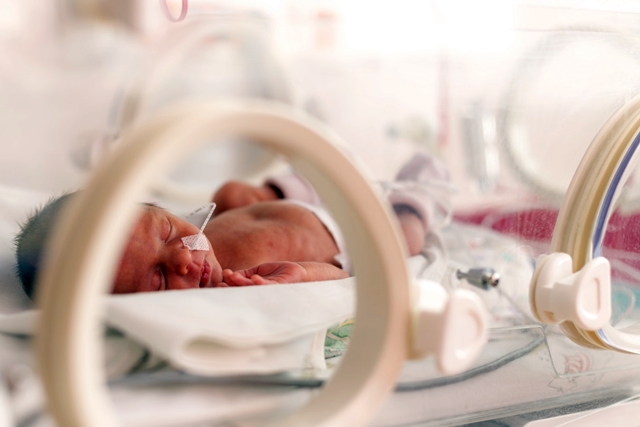22 August 2018. A start-up company is gaining the rights to a technology that helps the breathing of infants suffering from withdrawal from drugs taken by their mothers, and other disruptive conditions. Prapela Inc. in Concord, Massachusetts, founded last year, is licensing a technology known as stochastic vibro-tactile stimulation, or SVS, from Harvard University. Financial aspects of the licensing agreement were not disclosed.
SVS is designed to give newborns with inherited health challenges a more supportive environment to help them sleep and recover from their conditions. The technology is based on a baby box, an idea started in Finland to give newborns of all economic backgrounds a simple, safe, and standard immediate environment until they grew large enough for a crib. SVS builds on the baby box concept with a mattress that provides infants in need with occasional mild vibrations to encourage normal breathing rhythms and heart beats.
This mattress employs stochastic resonance, a principle from physics where adding random noise to a signal in the right way and right time can improve the detection of that signal. Applied to biological systems, stochastic resonance should improve detection of neurological signals as well. Software driven by algorithms reflecting stochastic resonance and newborn breathing patterns regulates the timing of vibrations given to the mattress.
A growing need for SVS technology is babies born with neonatal abstinence syndrome, a disorder where the baby suffers withdrawal symptoms from drugs taken by the mother and absorbed in the womb. Other disorders where infants can benefit from SVS are apnea of prematurity, found in pre-term babies without fully developed central nervous systems that causes their breathing to stop and heart rate to fall, as well as repeated abdominal pain from colic and congenital heart disease.
SVS was developed by researchers at Harvard’s Wyss Institute for Biologically Inspired Engineering, as well as University of Massachusetts Medical School in Worcester, and Massachusetts General Hospital and Beth Israel Deaconess Medical Center in Boston. As reported by Science & Enterprise in November 2015, researchers from these institutions reported tests showing SVS could prevent episodes of sleeplessness in premature babies with apnea. A similar study reported last year among babies with neonatal abstinence syndrome shows SVS can reduce episodes of hyperirritability and physiological instability.
Prapela plans to take the SVS-enhanced baby box to market. The company received its initial funding from the Charles H. Hood Foundation in Boston, and awards for its technology from Johnson & Johnson Innovation and National Institute on Drug Abuse. The lead researchers on SVS, David Paydarfar, now chair of neurology at University of Texas medical school in Austin, and Elisabeth Bloch-Salisbury, professor of pediatrics at UMass medical school are listed as inventors of the technology in a 2014 patent application. Paydarfar was previously an associate faculty member at the Wyss Institute.
More from Science & Enterprise:
- Genomic Sequencing for Newborns Studied in Clinical Trial
- Multi-Function Stretchable Sensor Platform Developed
- Yeast Biosensor Devised to Measure Radiation Exposure
- Google Glass System Assessed for Autism Therapy
- Smart Bandage Monitors, Provides Drugs to Chronic Wounds
* * *


 RSS - Posts
RSS - Posts
You must be logged in to post a comment.